The air in your house isn't as clean as you might think. Smoke and vapors fill the room whenever you cook. In addition, it filters those air pollutants and creates a bad stinky odor that remains in your AC unit. Now you might wonder how do you clean your Toshiba's AC? Wonder no more!
All new Toshiba Single Split Systems have a self-cleaning mode, preventing air contaminants from building inside the AC unit.
To run the Toshiba self-cleaning mode, you'll have to do the following:
- Ensure your AC is in 'DRY' or 'COOL' mode.
- Using your Toshiba remote, tap the 'ON' and 'OFF' keys.
- Let the AC unit run for around 30 minutes; then, it switches 'OFF' after the cycle.
- Tap the 'START' and 'STOP' buttons to stop the self-cleaning process immediately.
That sounds easy enough! Continue reading as we dive below into cleaning your Toshibas AC's exterior parts. We'll also cover how to clean your outside unit. With that said, let's discuss it below.
![Toshiba air conditioner outdoor unit installed on the wall, How To Clean A Toshiba Air Conditioner [In 4 Easy Steps]](https://hvacseer.com/wp-content/uploads/2022/06/How-To-Clean-A-Toshiba-Air-Conditioner-.png)
How To Clean A Toshiba Air Conditioner
As you can see, dust will stick easily on wet or moist parts of your Toshiba's exterior casing. Neglecting the dust in your AC unit will stain the AC unit's cover and break easily.
Use a moist towel to clean it whenever dust is present rather than wipes, spray, or other cleaning agents. Dust will accumulate on your air conditioner's exterior over time of its operation, particularly on your louver's sides.
Therefore, a user's active role is necessary to keep your unit in the best shape for many years.
How To Clean Toshiba's Outdoor Unit
Air must be able to easily move in and out of your AC's outside unit. Conduct regular inspections of your unit and clear any pebbles, twigs, or other material that has formed around it.
If there are shrubs near your outside unit, you must clear this blockage more frequently, especially in the autumn. The standard clearance for your outdoor unit is at least 2 feet to give the outside unit enough airflow passage.
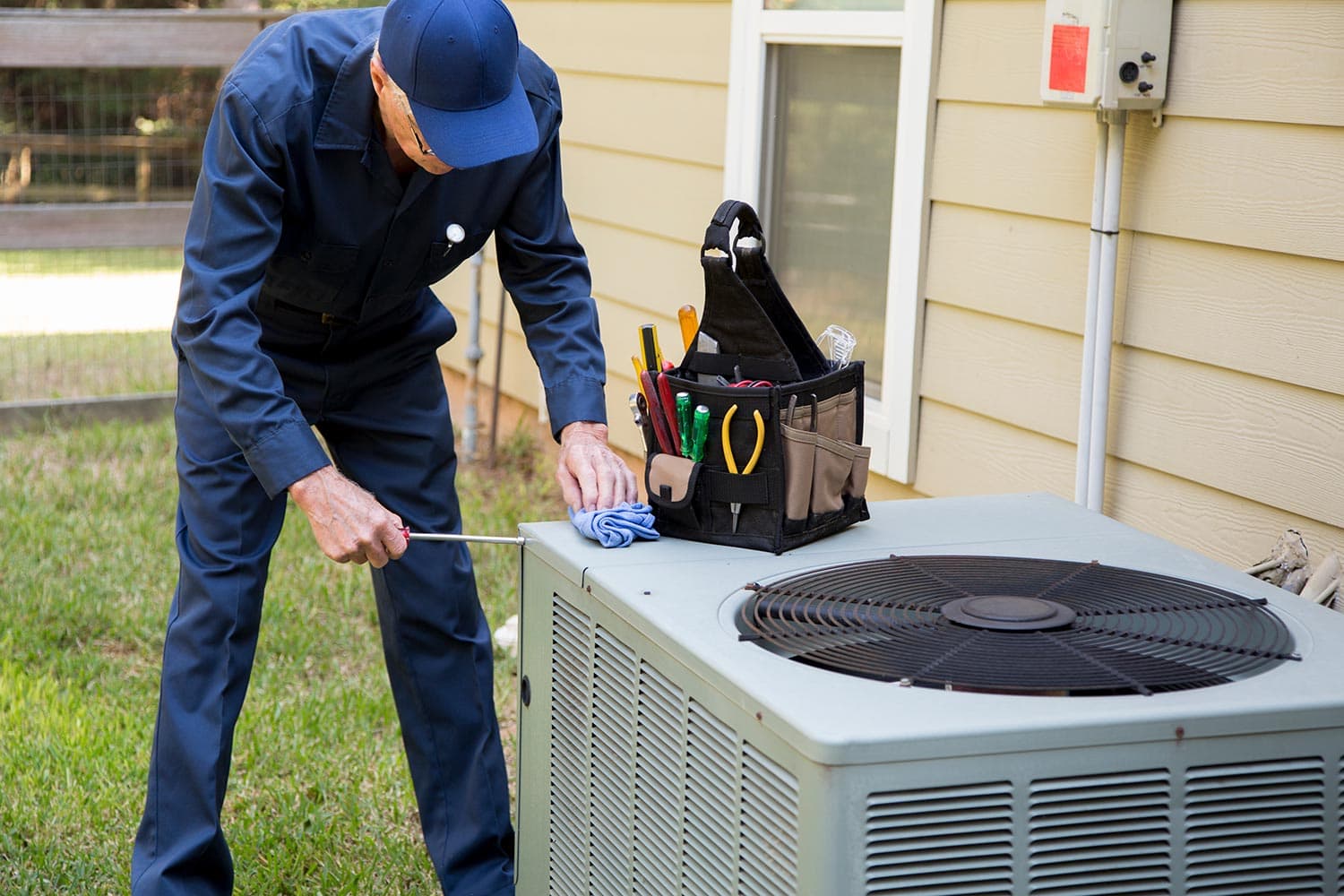
How To Clean A Toshiba AC's Filter
Toshiba's split-cycle air conditioner units feature cutting-edge technology called IAQ filters. These filters can enhance air quality and reduce dust build-up.
Furthermore, it can kill 99.9% bacteria, restrict mold growth, and absorb odors, including smoke and food.
View these Toshiba air filters on Amazon.
However, as Toshiba states, the key to achieving this successfully is to clean your filters once every two weeks. Doing so will determine the filter cleaning efficiency during its life cycle.
To clean your Toshiba filter correctly, follow these steps:
- Shut 'OFF' the AC unit's power.
- Lift the AC panel upward and slide the filters downward to remove it.
- Clean your AC filter using a vacuum.
- Rinse the AC filter thoroughly with fresh water.
- Make sure to dry your filter completely.
- Put back your air filter again correctly.
- Securely close the AC's filter panel.
- Put the power 'ON' again.
See this visual demonstration of how to clean your AC filter on YouTube:
How Do I Clean My Window Air Conditioner?
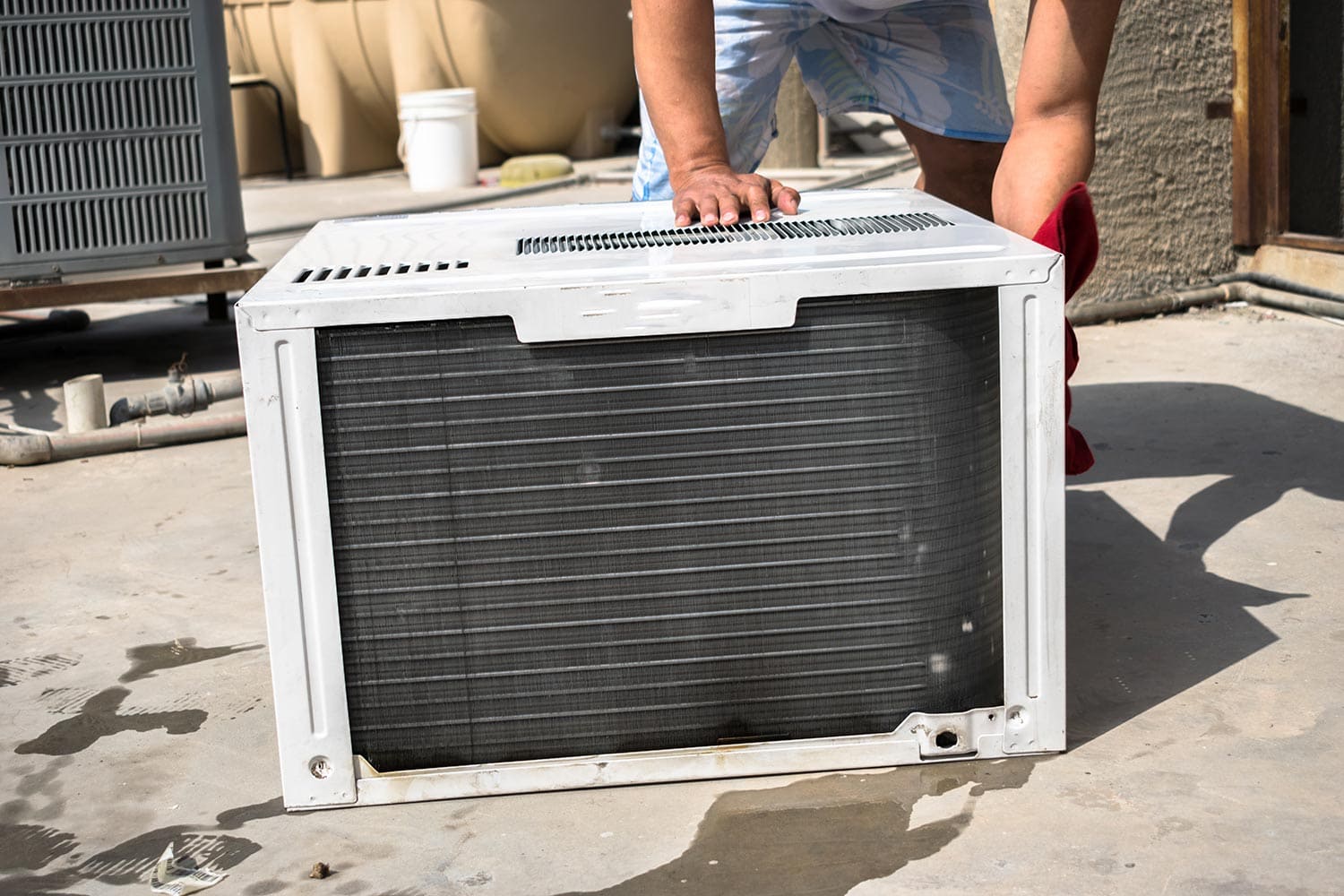
It may be daunting if you've never cleaned a window air conditioner. Luckily, the procedure isn't as complex as you may think.
You'll need a few things from your home to thoroughly clean your window air conditioner unit.
Prepare these necessary items before you begin:
- Detergent
- Cloth/Towel
- Screwdriver
- Fresh warm water
- Bucket or drip tray
- Compressed air can
- A soft brush or bristle brush
- Dilute a 3% hydrogen peroxide on a bottle
Once you have these items, you can start cleaning your window AC:
Clean The AC Filter
Shut off your window air conditioner before removing the front panel and the air filter. Use a vacuum to remove as much dirt as possible if it's full of dust or hair.
Afterward, wash your filter in warm, detergent water and air dry it. Wait until it's completely dry before placing it back in your window air conditioner.
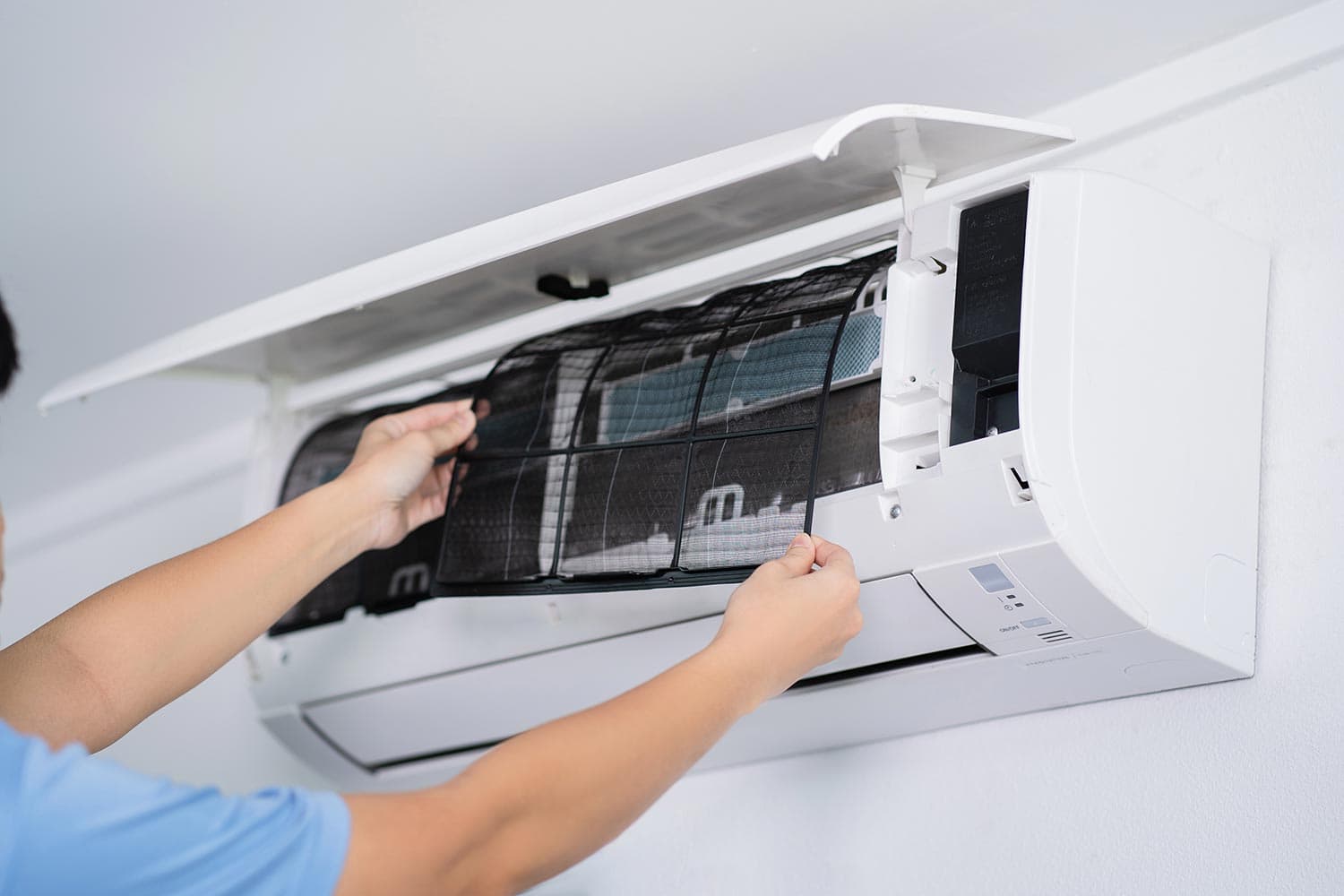
Wash The Grill
Wash the grills with warm water and detergent while drying your air filter. You can even wipe it down with a moist reusable cloth if you don't want to wash it.
Just clean properly the gaps where air exits before reinserting the grill.
Brush The Coils And Fins
Carefully brush the metal fins inside your window air conditioner with a bristle brush. Take your time with this step because the fins can be pointy and bend quickly.
If any fins are bent, gently push them back right in place.
Next, use your compressed air can to clean the coils inside the AC unit. Clear any dirt that may be keeping your window AC from running normally.
Wipe Out The Dirty Drain
First, empty the drip tray and rinse the drain to finalize the inside cleaning of your window air conditioner.
Grab a wet towel and pull out any dirt or dirty water that has accumulated inside your tray. Ensure that it's all dry and clean before reattaching.
Finally, inspect the drain pan to ensure that nothing is blocking the drainage. Wipe around the entrance hole with your cloth to provide a clear path for water to flow outside the window AC unit.
Carefully Spray Your Solution
Once the cleaning is done, reinstall your window air conditioner right after spraying it with hydrogen peroxide to avoid mildew build-up.
Spray the hydrogen peroxide mixture to the spots where the air blows in and out. Allow the peroxide to dry before securely plugging the power 'ON' and use your window unit again.
NOTE: Don't switch your AC unit 'ON' and 'OFF' when running and condensate to avoid mildew build-up!
How Much Does It Cost For Toshiba's AC Service?
Toshiba is the specialist to call when your Toshiba model air conditioner needs to be repaired or serviced.
They have the knowledge, experience, and skills to quickly assess and repair any of your AC models. Furthermore, you will be satisfied with their courteous customer service.
Servicing And Cleaning Prices
Standard AC Servicing
1 fan coil = $50 2 fan coils = $55 3 fan coils = $70 4 fan coils = $100 5 fan coils = $100 6 fan coils = $115
Yearly Contract
1 fan coil = NA 2 fan coils = $200 3 fan coils = $240 4 fan coils = $300 5 fan coils = $360 6 fan coils = $400
Is It OK To Spray Water On Your Air Conditioner Condenser?
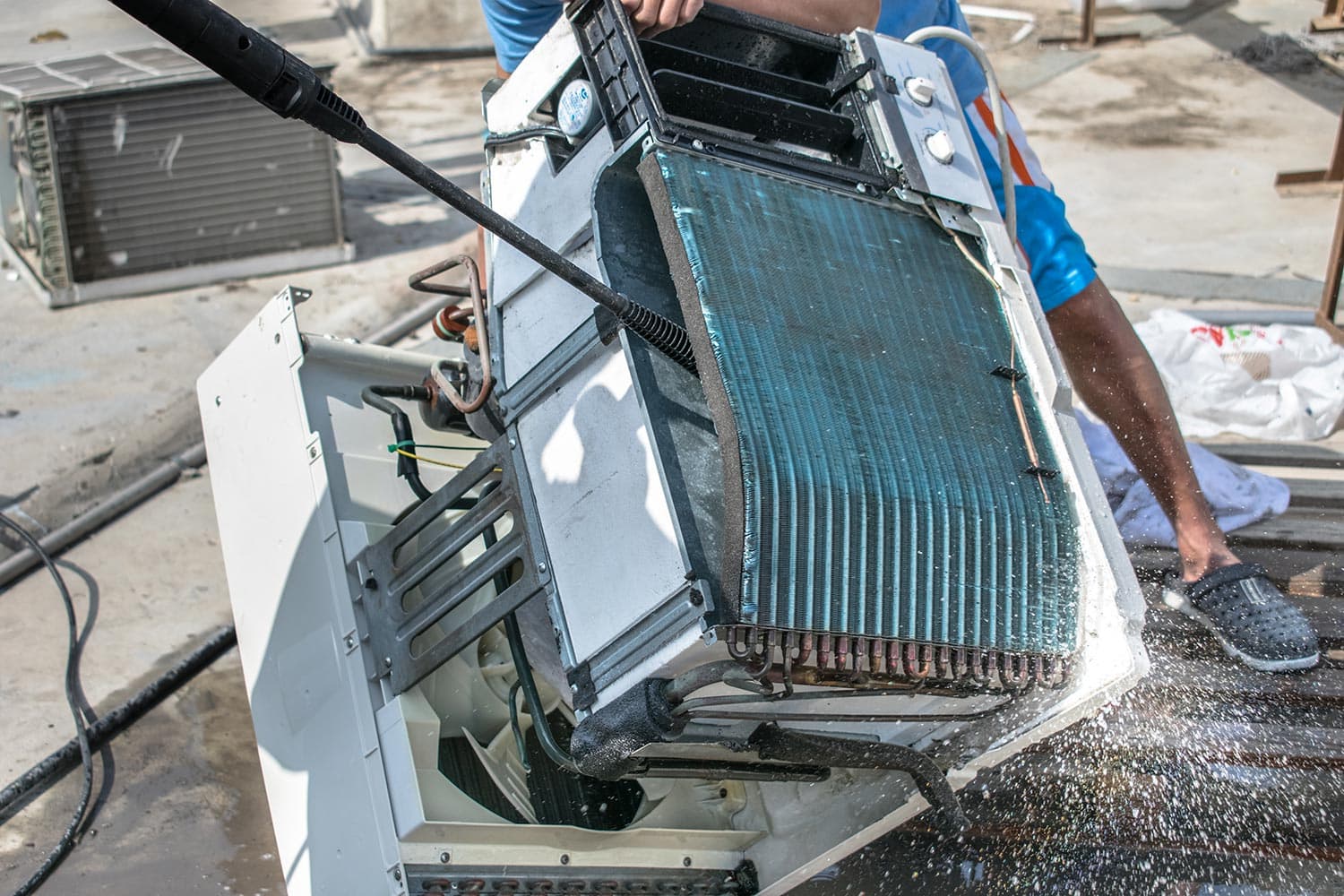
When cleaning, you may be hesitant to spray water on your air conditioner, especially the outdoor unit.
After all, there is no risk of spraying water on your AC unit's condenser; otherwise, it can improve its efficiency. That's because the AC's condenser needs a regular spray.
When you encounter issues with your air conditioner, however, after spraying water, you should refer to your HVAC specialist.
Benefits Of Spraying Water On Your Condenser
Giving your air conditioner's condenser a spray can help it run more smoothly.
There are several advantages to this approach:
Enhances Efficiency
When you spray water on your condenser, it helps the water to evaporate, making it easier to cool. As a result, it requires less effort, lowering the amount of power consumed and the amount of lost energy you pay for the long operation process.
Prevents Costly Repair
Washing your outside air conditioner unit with water helps to remove particles and dirt that might otherwise accumulate in the vents over time.
Replacing your filter regularly will help reduce your power usage by as much as 5-15%. The more debris gathers, the dirtier your filter becomes, yet it still doesn't catch any airborne particles.
Furthermore, some air particles will block the unit's airflow, resulting in expensive repairs and replacements in the long run.
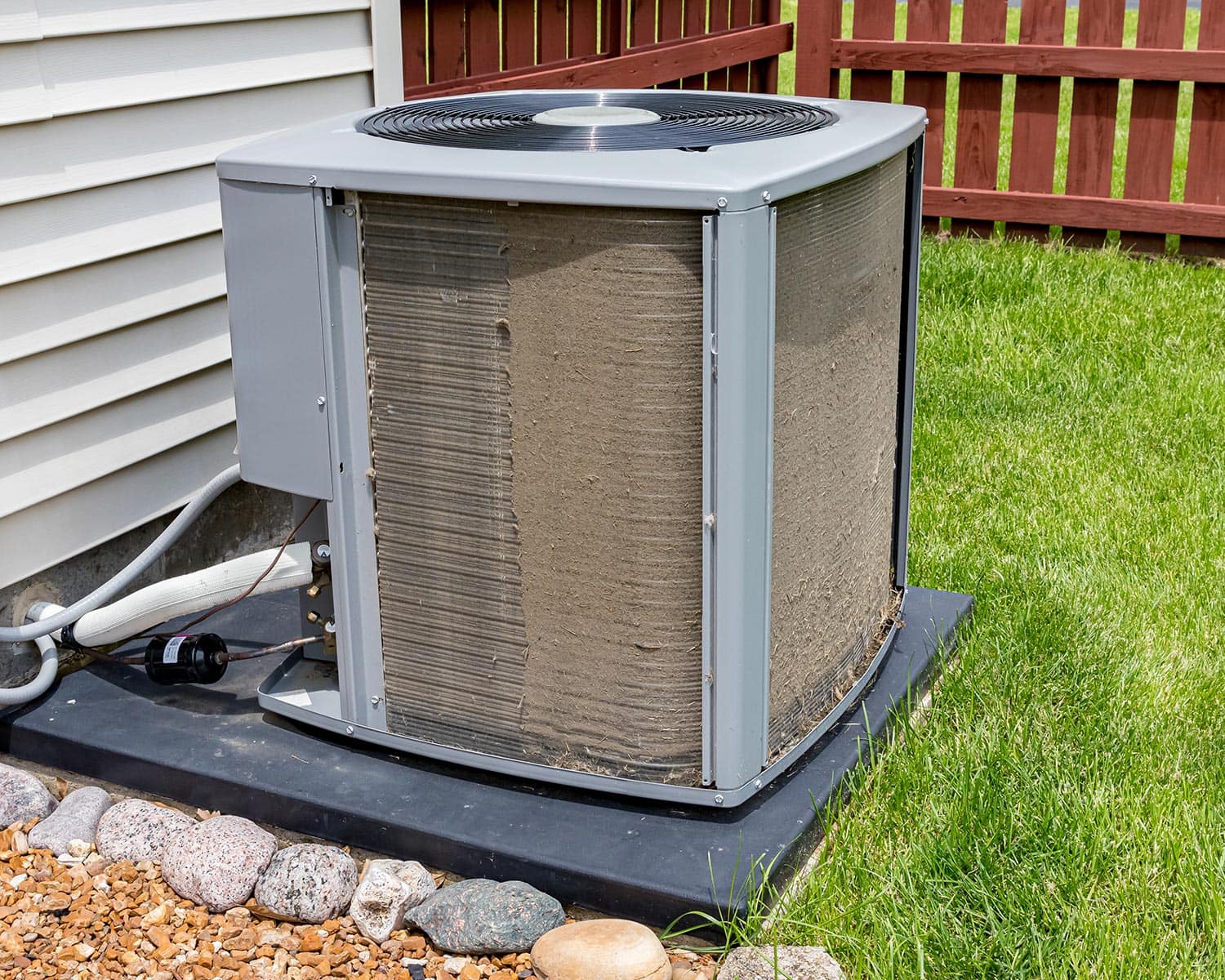
Prolongs The AC Units Lifespan
Additionally, increasing the efficiency of your air conditioner extends its lifecycle. The less you make it work and look after it, the longer your AC unit will last.
Please remember to clean and replace your filters once every 90 days. A dirty air filter can cause issues you could have avoided if you had just managed it properly.
To Wrap Things Up
Cleaning your Toshiba's air conditioner keeps your unit aesthetic great and makes your home even more pleasant. Throughout this article, we've discussed how to clean your AC exterior parts.
You've also learned how to clean your AC's outdoor unit. In addition, we also explain how to clean and replace your air filters and so on.
We are very much pleased to share with you all of this information. We hope this will benefit you in caring for and maintaining your AC unit.
Made it this far? Please also read our related topics below:
Toshiba Vs. Mitsubishi Air Conditioner: Which To Choose?
Should I Drain My Toshiba Portable Air Conditioner? [And How To]

